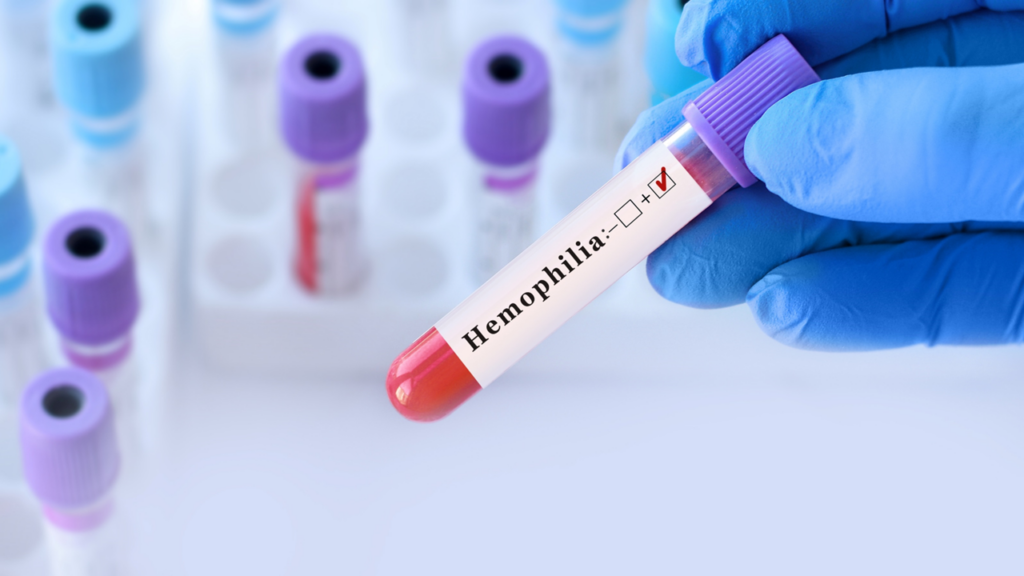Pfizer’s Hympavzi (marstacimab-hncq) has received approval from the US Food and Drug Administration (FDA) for treating hemophilia A or B in adults and adolescents aged 12 and older with factor VIII deficiency (hemophilia A) or factor IX deficiency (hemophilia B), who do not have inhibitors to these factors.
Hympavzi is the first anti-tissue factor pathway inhibitor (anti-TFPI) approved in the US for hemophilia A or B, and it’s also the first hemophilia therapy to be administered via a pre-filled auto-injector pen. Hympavzi reduces the activity of TFPI, a naturally occurring anticoagulation protein. This action increases the amount of thrombin, a critical enzyme in blood clotting, helping to prevent bleeding episodes.
Unlike traditional treatments, which often require multiple intravenous (IV) infusions per week, Hympavzi offers a once-weekly dosing schedule, with minimal preparation and greater convenience.
The approval complements the recently celebrated World Thrombosis Day — honoring the global health burden of thrombosis, a condition where blood clots form abnormally inside blood vessels — on October 13, 2024, with this year’s theme being “Move Against Thrombosis.”
Hympavzi’s approval, with its innovative approach to balancing clotting, could offer a modern solution that adds to the global effort to reduce the risk of thrombosis. This is Pfizer’s second FDA-approved treatment for a rare genetic blood disorder this year.
Related: World Thrombosis Day 2024: Move Against Thrombosis
This approval stems from the results of the Phase III BASIS trial, which evaluated the efficacy and safety of Hympavzi in patients with hemophilia A or B. The trial enrolled 116 patients, who were randomly assigned to either receive the drug during a 12-month active treatment period or continue their standard regimen of routine prophylaxis or on-demand treatments.
The primary endpoint, annualized bleeding rate (ABR) — a measure of how many bleeding episodes a patient experiences over a set reporting window — showed that Hympavzi reduced treated bleeds by 35 percent compared to routine prophylaxis and by 92 percent compared to on-demand therapy. For patients receiving on-demand factor replacement, the ABR dropped from 38 to 3.2 during treatment with Hympavzi, and in the prophylaxis group, the ABR dropped from 7.85 to 5.08.
Hympavzi displayed superiority across all bleeding-related endpoints in the on-demand group and non-inferiority in the prophylaxis group.
Safety data from the Phase III trial aligned with earlier studies, with the most common side effects being injection site reactions, headache and itching. However, the FDA has issued warnings for thromboembolic events (blood clots), hypersensitivity reactions and embryofetal toxicity. No new safety concerns arose during the trial, with adverse events occurring at rates comparable to earlier phases.
XTALKS WEBINAR: Leveraging EMR Data and Patient Engagement to Maximize Clinical Trial Recruitment
Live and On-Demand: Tuesday, November 19, 2024, at 2pm EST (11am PST)
Register for this free webinar to discover how integrating electronic medical record (EMR) data with personalized patient engagement strategies can transform recruitment in clinical trials.
Hympavzi’s approval highlights the broader need for innovative hemophilia treatments. Real-world insights from the CHESS study, which included 57 patients, showed that severe hemophilia B patients in the US faced a substantial economic burden, with an average annual direct medical cost of $614,886, largely driven by the high cost of factor IX replacement therapy. More than half (56 percent) of patients reported that their daily lives were compromised by hemophilia, and 28 percent experienced chronic pain levels of 6 or higher on a scale of 1 to 10.
Pfizer is awaiting additional regulatory approvals in other regions, including Europe. Hympavzi has also been granted Orphan Drug designation for treating a rare and serious condition. A separate cohort of the BASIS trial investigating Hympavzi in patients with inhibitors is expected to conclude in 2025.












Join or login to leave a comment
JOIN LOGIN